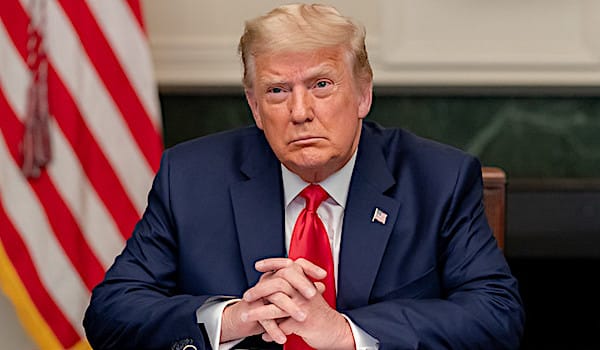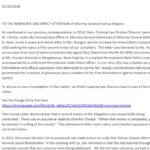Establishment media insist there is no “evidence of systemic fraud” in the 2020 election, but it clearly took place 14 months ago when Pennyslvania officials illegally changed laws that compromised the integrity of the vote, contends constitutional scholar, author and media personality Mark Levin.
Previously, he argued on his Fox News show Sunday night, ballots that didn’t have a signature, didn’t match the signature on file, were illegible or were received or postmarked after Election Day were illegal.
“All of those ballots today count because of unconstitutional and illegal changes that were made by officials,” he said.
“None of this is discussed in a single newsroom in America on a single TV show, radio show or any other show.”
TRENDING: Trump must take charge to avoid bloody revolution
In October 2019, he explained, the Republican-led state legislature passed a bill, Act 77, changing the law to allow univeral mail-in voting.
The problem, Levin said, is that the Pennyslvania Constitution does not allow it.
Republicans ‘buckled’
Democrats across the country have been pushing for mail-in voting for at least a decade, he noted.
Do you agree with Mark Levin on this issue?
100% (2 Votes)
0% (0 Votes)
Republicans in Pennsylvania, he said, “buckled” to the Democrats, passing a measure allowing univeral mail-in voting as part of an omnibus bill, and it was signed by the Democratic governor.
While allowing for universal voting, the Republicans rejected Gov. Tom Wolf’s demand that the signature and deadline requirements be waived.
So Wolf went to the Pennyslvania Supreme Court, which has a 5-2 Democratic majority, and got his wish, which included extending the deadline to three days after Election Day.
“They had no legal or constitutional basis for doing any of that,” Levin said.
He explained that the court violated Article 2, Section 1, Clause 2 of the U.S. Constitution, which grants the authority to regulate elections to the state legislature.
But the October 2019 law itself violated the Pennsylvania constitution, Levin pointed out, which requires an amendment to the constitution to make any election-law changes.
He explained that the lengthy, multi-step process culminates in a vote by the people.
“So, the state legislature in October 2019 acted unconstitionally. The governor, by signing it, acted unconstitutionally. The state Supreme Court, by changing even the unconsitutional law, acted unconstitutionally, plus violated that that Article 2 section of the Constitution,” he said.
Republican case ‘likely to succeed’
Two Republican members of Congress, Mike Kelly and Sean Parnell, took that argument to court, and a Pennsylvania appellate judge issued a temporary injunction to stop certification of the vote.
Significantly, the judge ruled they are likely to succeed on the merits of their case.
The state’s Supreme Court, however, overturned the ruling, prompting an appeal to the U.S. Supreme Court.
On Sunday, Supreme Court Justice Samuel Alito moved the deadline for Pennsylvania officials to respond from Wednesday at 4 p.m. to Tuesday at 9 a.m., the day states select their slate of electors to the Electoral College.
The Electoral College meets Dec. 14 to cast its votes for president.
Texas Sen. Ted Cruz, arguing the case “raises serious legal issues,” urged the Supreme Court to hear the lawsuit.
“This appeal argues that Pennsylvania cannot change the rules in the middle of the game. If Pennsylvania wants to change how voting occurs, the state must follow the law to do so,” Cruz said in a Dec. 1 statement.
The Pennsylvania Supreme Court’s decision, he said, reflected “their political and ideological biases.”
“Just over a month ago, Justice Alito, along with Justice Thomas and Justice Gorsuch, wrote — correctly, I believe — concerning the Pennsylvania court’s previous decision to count ballots received after Election Day, that ‘there is a strong likelihood that the State Supreme Court decision violates the Federal Constitution,'” Cruz pointed out.
Last Thursday, Trump campaign lawyer Jordan Sekulow said the most likely path for the president would be for the U.S. Supreme Court to combine cases from several states that would together determine the outcome of the election. The matter could then go to the House, where the Constitution gives each state delegation one vote. Republicans control 26 state delegations while Democrats have 23.
The election also could go to the House via state legislatures, and Republicans in a number of the battleground states are discussing asserting their constitutional authority to dispute the selection of electors to the Electoral College.
See the segment from “Life, Liberty and Levin”:
Everyone should watch this @marklevinshow to understand what happened in PA, and decide if you believe that this is exactly the kind of case SCOTUS should rule on. https://t.co/0aXBz0xG52
— Martha MacCallum (@marthamaccallum) December 7, 2020










